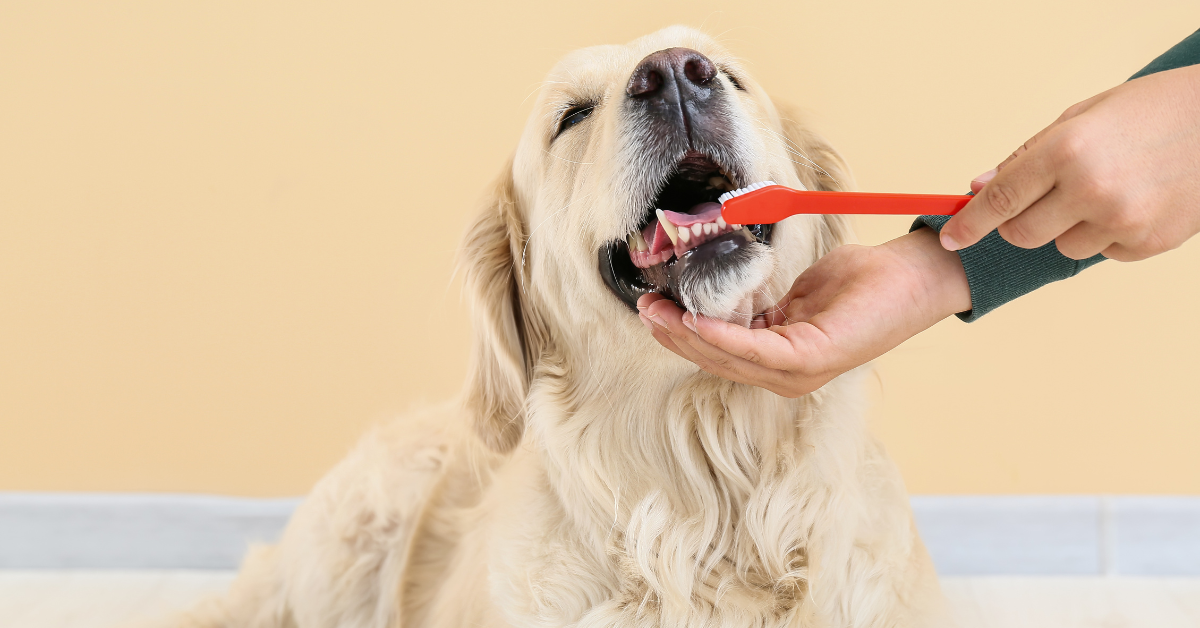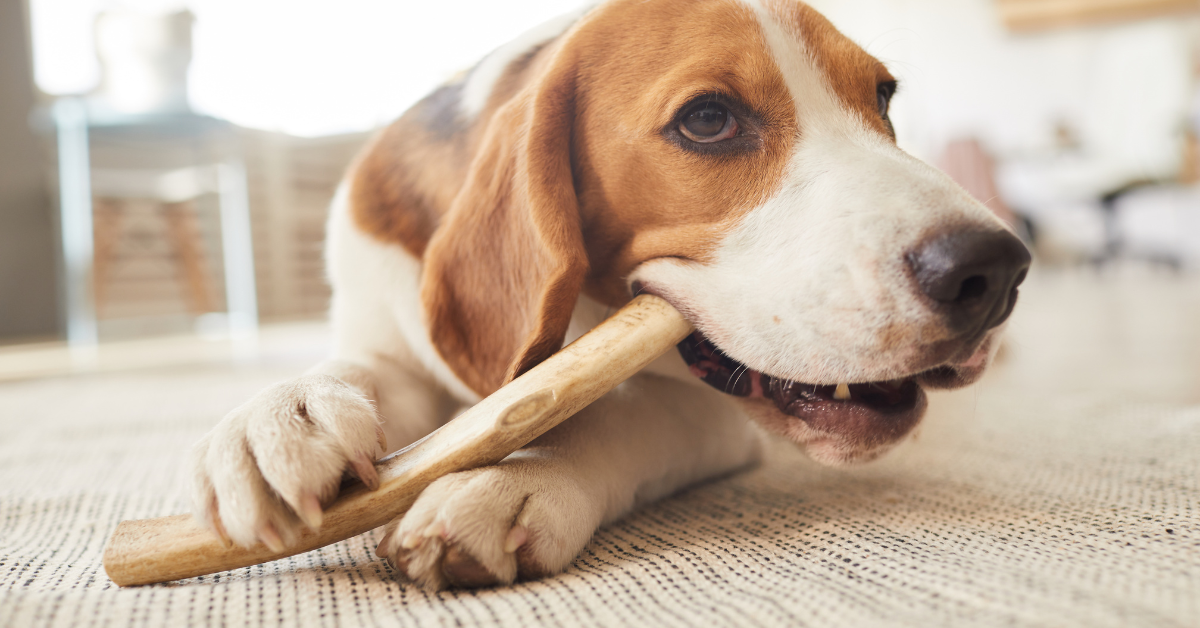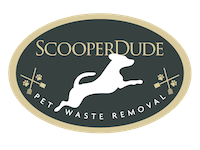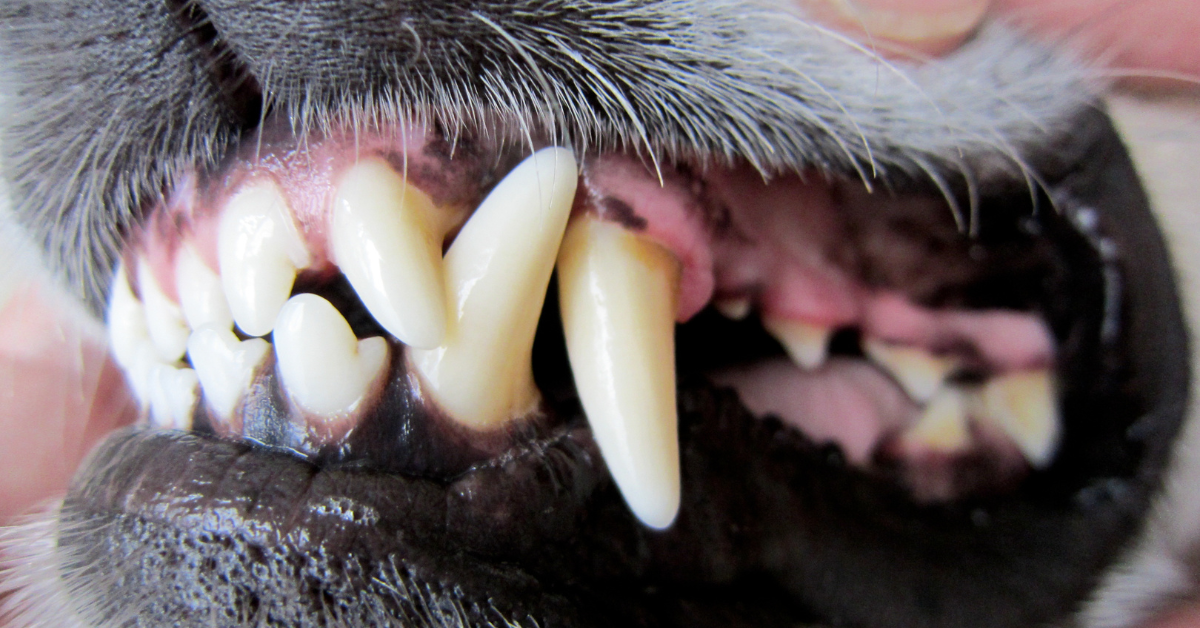This article is courtesy of Crappy Cleanup Pet Waste Removal
Are you ready to bit back against tooth decay? From regular check-ups with the vet to providing a healthy diet and plenty of exercise, keeping your dog’s teeth healthy has to be included to keep our furry friends fit and well. However, many pet parents overlook one important aspect of their pet’s health—their teeth. Dental decay is a common problem among dogs, with research suggesting that around 80% of dogs have some form of dental disease by the age of three.

Poor dental health can lead to a range of problems, from bad breath and gum inflammation to tooth loss, pain, and even organ damage through the spread of infection. To prevent dental decay from causing these issues, it’s important to adopt effective dental care practices at home. Here, we’ll dive into the various factors that can contribute to dental decay in dogs, as well as tips and tricks to help keep your dog’s teeth clean and healthy.
Performing regular at-home dental care on your dog plays a significant role in preventing dental decay and keeping your furry friend’s teeth healthy. Brushing your dog’s teeth regularly, preferably every day or several times a week, with toothpaste specially formulated for dogs can remove plaque and tartar buildup. Additionally, providing dental chews or bones, which are designed to scrape off excess tartar and massage gums, can also help keep your dog’s teeth clean and healthy. When choosing a dental chew or bone for your dog, select one that is suitable for their specific size and chewing behavior to avoid choking or dental injury. Incorporating regular at-home dental care into your daily routine can help prevent periodontal disease and keep your dog’s breath fresh.

A significant part of supporting good oral hygiene for your dog is ensuring they receive a nutritionally balanced and age-appropriate diet. As with humans, a nutritious diet promotes good health overall, including healthy gums and teeth. While it may be tempting to give your furry friend table scraps or human food, their nutritional requirements differ from ours. Many commercial dog foods are formulated to meet the nutritional needs of dogs depending on their size, age, and breed. By providing a balanced and suitable diet for your dog, you’re starting them down a path of optimal health and wellbeing.
Keeping your dog’s teeth healthy is important to ensure their overall well-being. Plaque and tartar buildup can lead to serious dental issues and potentially affect your dog’s health. One way to help reduce plaque buildup is to ensure your dog has access to fresh, clean water at all times. This will help flush out any food particles and bacteria that can contribute to plaque formation. Providing your dog with toys designed for dental health, such as chew toys, can help keep their teeth clean and stimulate healthy gum tissue.
Also, be aware of any changes in their breath or behavior. Bad breath, difficulty eating or chewing, excessive drooling, and bleeding or inflamed gums are all signs of dental issues that should not be ignored. Ignoring these issues can lead to serious health problems for your furry friend. It is recommended that you regularly examine your dog’s teeth for signs of dental decay and schedule regular dental cleanings with your veterinarian. As with humans, prevention is key to maintaining optimal oral health in dogs.
Dental hygiene is a crucial part of your dog’s overall health and well-being. You can help protect your dog’s teeth from decay and prevent the development of dental problems. Remember, taking care of your dog’s dental health is not only for their benefit but also helps to maintain their quality of life.


